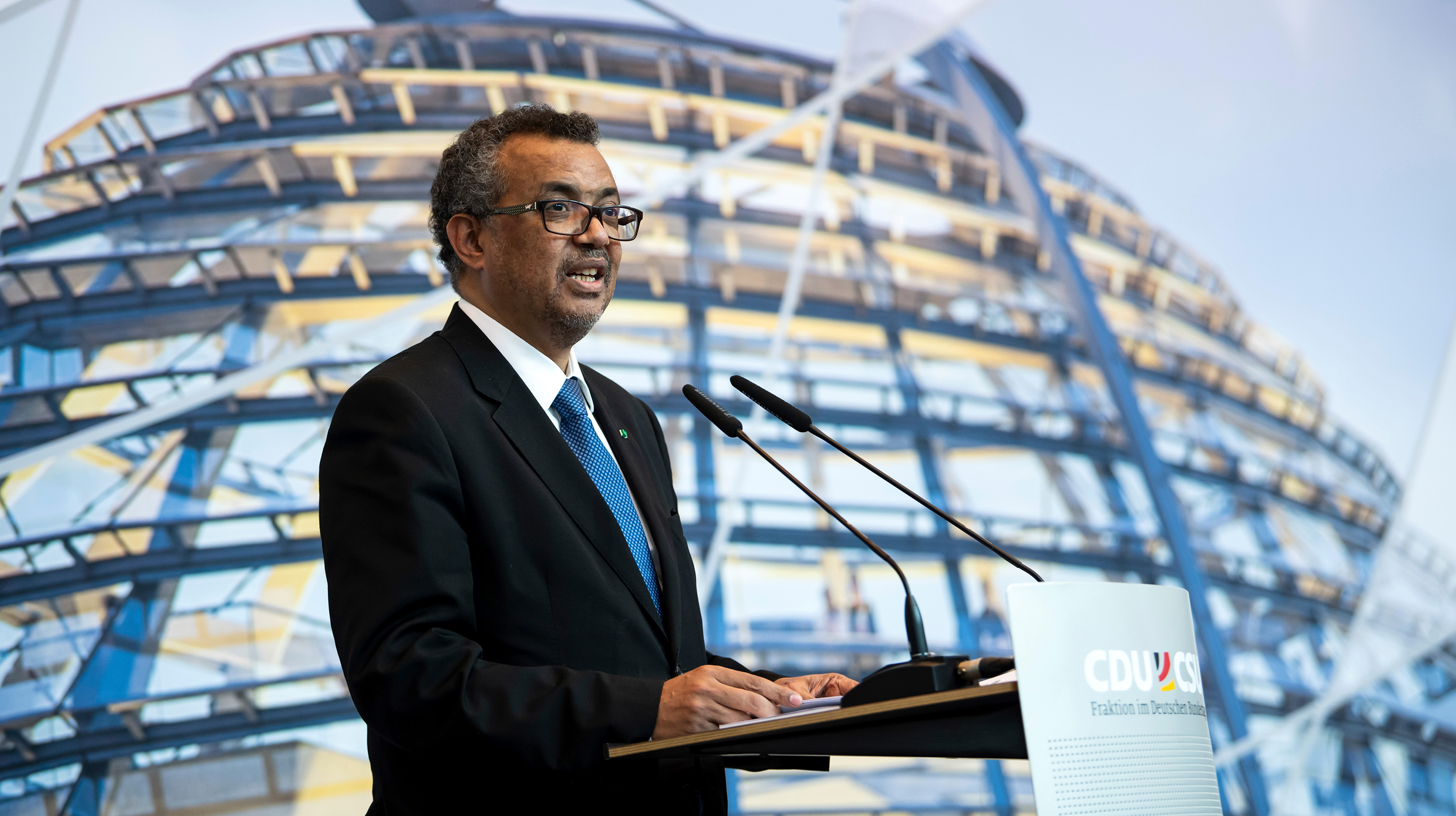Covid-19 is now officially a pandemic

The World Health Organization in Geneva said today that the spreading coronavirus contagion is now officially a pandemic.
What it means: The designation means that the novel coronavirus is spreading in many countries at the same time. It is also an acknowledgment that efforts to contain its spread around the world have not succeeded.
Keep fighting: The WHO urged an all-out fight against the virus, calling on nations to mobilize hospitals and entire societies.
“This is the first coronavirus that has reached pandemic proportions, but it also the first one that can be contained,” said WHO chief Tedros Adhanom Ghebreyesus, pictured above. “We should double down and be more aggressive.”
Global problem: The virus outbreak started in China late last year and has infected more than 80,000 there. Travelers soon spread the virus to other countries, setting off new outbreaks.
Currently, eight countries—among them the US—are reporting more than 1,000 cases apiece of Covid-19, as the dangerous pneumonia caused by the virus is known, according to the John Hopkins University dashboard. More than 10 further countries now have hundreds of cases.
Drastic measures: The WHO says it still wants countries to try to contain the epidemic, but it acknowledges that some have shifted to mitigation, or trying to slow the virus’s spread so their health systems aren’t overwhelmed.
“When we say the situation is pandemic, we are not saying the world should move from containment to mitigation; we are not,” said Tedros. “We are recommending a blended approach, with containment as the pillar.”
The WHO notes that 81 countries still have no cases. Tedros said these “should give no ground” to the virus. Another 57 countries that have 10 case or fewer could still stop it quickly.
US lagging: The WHO declined to criticize specific countries, but officials indicated that those with low levels of testing, like the US, were not mounting an effective response.
Success stories: Both China and South Korea have managed to reverse their outbreaks, with many fewer new cases. However, if the virus spreads uncontrolled elsewhere it could easily be reintroduced into countries that have beaten it.
This story is part of our ongoing coverage of the coronavirus/Covid-19 outbreak, which is now available free of charge. You can also sign up to our dedicated newsletter.
Deep Dive
Policy
Is there anything more fascinating than a hidden world?
Some hidden worlds--whether in space, deep in the ocean, or in the form of waves or microbes--remain stubbornly unseen. Here's how technology is being used to reveal them.
A brief, weird history of brainwashing
L. Ron Hubbard, Operation Midnight Climax, and stochastic terrorism—the race for mind control changed America forever.
What Luddites can teach us about resisting an automated future
Opposing technology isn’t antithetical to progress.
Africa’s push to regulate AI starts now
AI is expanding across the continent and new policies are taking shape. But poor digital infrastructure and regulatory bottlenecks could slow adoption.
Stay connected
Get the latest updates from
MIT Technology Review
Discover special offers, top stories, upcoming events, and more.